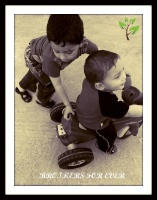raedgazo
مشارك مميز مع مرتبة الشرف


الاوسمة



عدد المساهمات : 1689
تاريخ التسجيل : 12/10/2010
 |  موضوع: general linguistics موضوع: general linguistics  الخميس مايو 26, 2011 4:38 am الخميس مايو 26, 2011 4:38 am | |
| linguistics
| Areas of theoretical linguistics |
Theoretical
linguistics is often divided into a number of separate areas, to be
studied more or less independently. The following divisions are
currently widely acknowledged:
the study of the different sounds that are employed across all human languages
the study of patterns of a language's basic sounds
the study of the internal structure of words
,
the study of how words combine to form grammatical sentences
the study of the meaning of words (lexical semantics), and how these combine to form the meanings of sentences; and
t
he study of how utterances are used (literally, figuratively, or otherwise) in communicative acts
the study of languages whose historical relations are recognizable
through similarities in vocabulary, word formation, and syntax.
Linguistic Typology, the study of the grammatical features that are employed across all human languages
Whereas
the core of theoretical linguistics is concerned with studying
languages at a particular point in time (usually the present),
diachronic linguistics examines how language changes through time,
sometimes over centuries. Historical linguistics enjoys both a rich
history (the study of linguistics grew out of historical linguistics)
and a strong theoretical foundation for the study of language change.
Explicitly historical perspectives include historical-comparative linguistics and etymology.
Whereas theoretical linguistics is concerned with finding and
describing
generalities both within languages and among all languages, as a group, applied linguistics
takes the results of those findings and applies them to other areas. Usually applied linguistics refers to the
use of linguistic research in language teaching, but linguistics is
used in other areas, as well. Speech synthesis and speech recognition,
for example, use linguistic knowledge to provide voice interfaces to
computers.
Sociolinguistics, anthropological linguistics, and linguistic
anthropology are where the social sciences that consider societies as
whole and linguistics interact.
Critical discourse analysis is where rhetoric and philosophy interact with linguistics.
Psycholinguistics and neurolinguistics is the where the medical sciences meets linguistics.
Other cross-disciplinary areas of linguistics include language
acquisition, evolutionary linguistics, stratificational linguistics, and
cognitive science.
Prescription and description
Main article: Prescription and description.
Most work currently done under the name "linguistics" is purely
descriptive; the linguists seek to clarify the nature of language
without passing value judgments or trying to chart future language
directions. Nonetheless, there are many professionals and amateurs who
also prescribe rules of language, holding a particular standard out for
all to follow.
Prescriptivists tend to be found among the ranks of language educators.
They hold clear notions of what is right and wrong, and may assign
themselves the responsibility of ensuring that the next generation uses
the variety of language that is most likely to lead to "success". The
reasons for their intolerance of "incorrect usage" may include distrust
of neologisms, connections to socially-disapproved dialects or simple
conflicts with personal pet theories. An extreme version of
prescriptivism can be found among censors, whose personal mission is to
eradicate words and structures they consider to be destructive to
civilization.
Descriptivists, on the other hand, seek to find the root of "incorrect
usage". They might describe it simply as "idiosyncratic", or they may
discover a regularity (a rule) that agitates the prescriptivists. Within
the context of fieldwork, descriptive linguistics refers to the study
of language using a descriptivist (rather than a prescriptivist)
approach. Descriptivist methodology more closely resembles scientific | |
|
